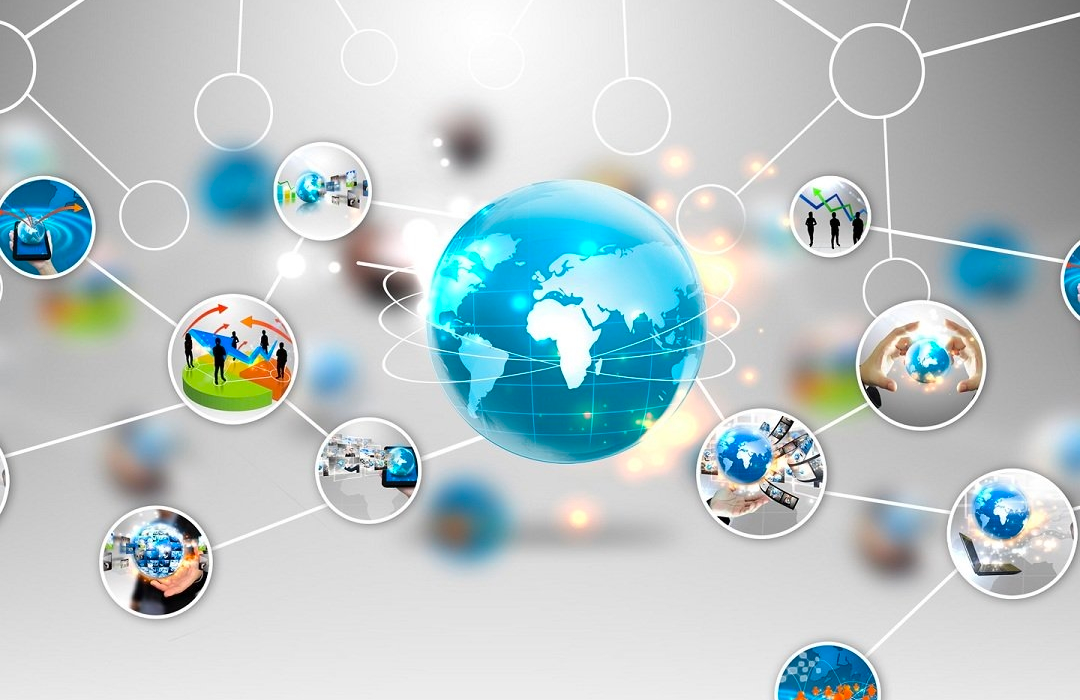
¶ Mass Communication Technology
¶ Life Remade
In 1994, Jim Clark and Marc Andreessen founded Mosaic Communications and released Netscape, introducing the general public to the internet. By now, in 2022, the internet has touched every aspect of human life.
In less than 30 years global society has completely changed.
Many of the consequences are obvious (you're reading this on the Internet right now) while other more subtle (the fact that Facebook posts can reshape families).
Living in the present, it's near impossible to understand how the holistic consequences. While we can't see forward, we can look back. To understand the impact of the internet we have to understand the impacts of the generations of technologies that came before it.
For example, we can draw parallels with how the printing press changed Europe.
¶ The Printing Press and the Reformation
Deep Dive: The Printing Press Revolution
Before 1440, mass communication did not exist. Few people could read or write, and while written works did exist, the process and materials were outrageously expensive.
The most effective way to spread a message was to spread it yourself.
Or maybe rely on a few apostles.
¶ The Gutenberg Press
In (approximately) 1440, German Johannes Gutenberg created a machine that drastically reduced the cost of printing books and other documents.
Those of us in 2022 know that this invention would go on to shape the world, up until and including today.
Gutenberg's life would take a turn, ending bankruptcy and poverty, but the printing press was an instant success.
By 1500, >1,000 printing presses were in operation throughout Western Europe and had produced >8MM books.
Society was changing, from the ground up.
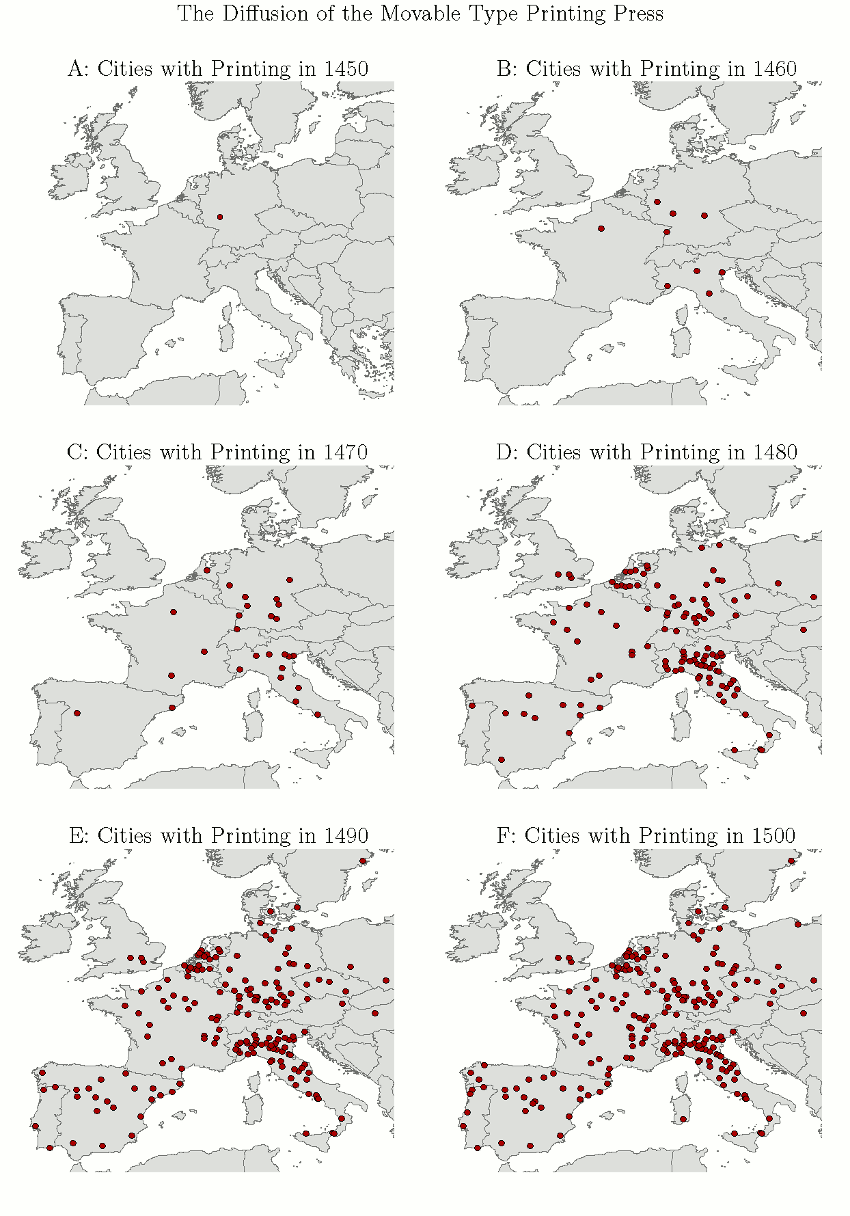
¶ Evolving Society
The major cities of Europe had a vibrant literary culture and a new intellectual class empowered by the rapid exchange of ideas.
The printing press is largely responsible for Desiderius Erasmus, Thomas Moore and many of the other creators of the Renaissance.
For ~75 years affordable content proliferated, minds became more receptive, and ideas spread; always accelerating over time.
As the people changed, society changed.
Eventually, the stress of this change became so strong that we can see it from 2022.
¶ Martin Luther
In 1517, Martin Luther entered the stage; his presence would change the world forever.
Since 1440, the printing press had been slowly changing society, one person at a time. But Luther would unleash the true power of mass communication.
He would launch the Reformation.
To understand how an unknown professor in a backwater university town could have such an impact, you must understand his relationship to the printing industry. Luther was low risk: he wrote briefly and the public couldn't get enough of him.
By 1520, 2 years after his debut, Luther was the best selling author since… the invention of the printing press.
The people couldn't get enough of his increasingly extreme and vitriolic content.
Eventually, the rhetoric would escape Luthers control and understanding.
Wikipedia will tell you what's next. Suffice to say it completely reshuffled Europe, and by extension, the planet.
And this change, for better or worse, came along with the most horrific and long series of wars the world had seen (for now).
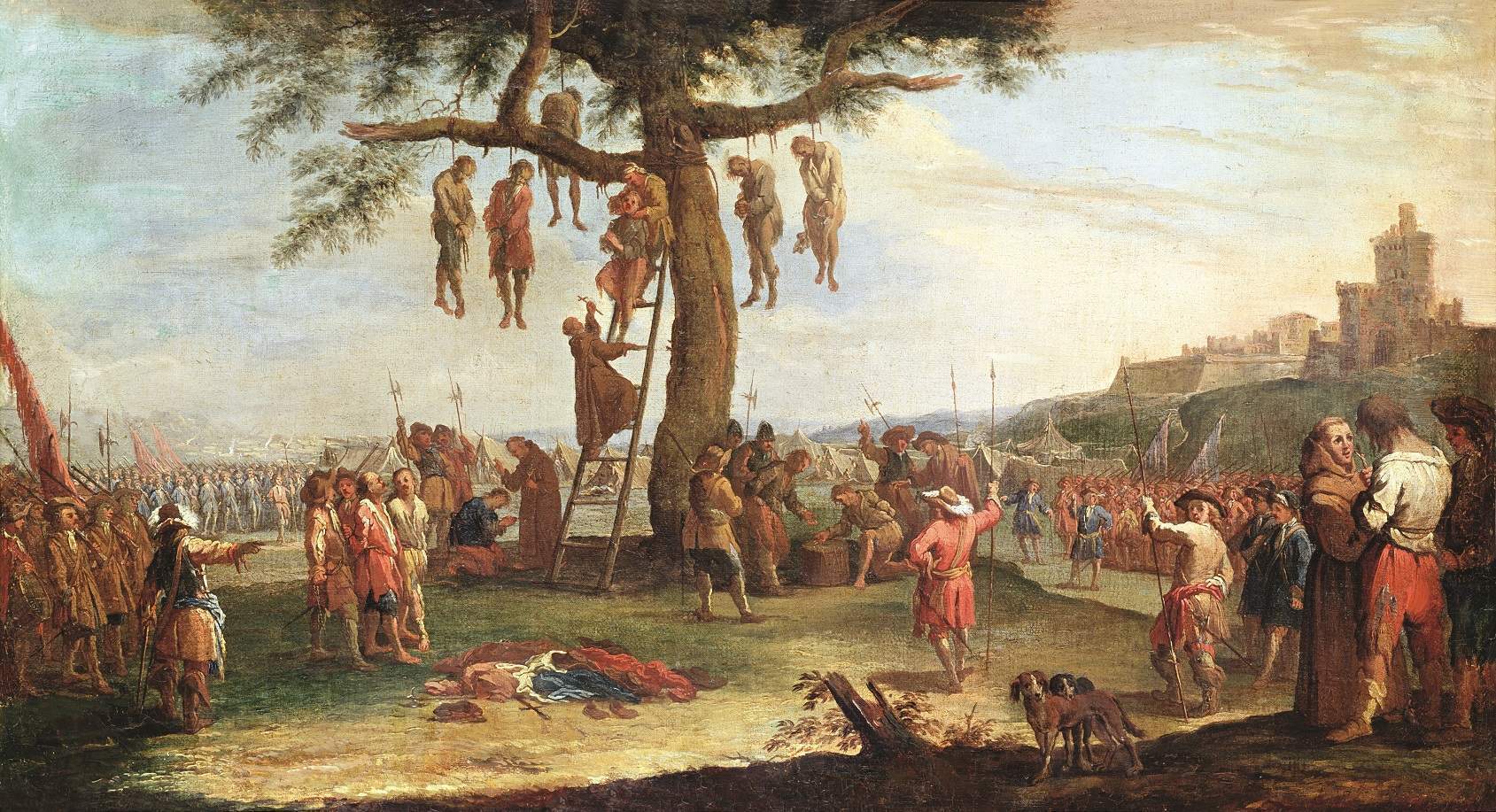
¶ Impact of Mass Communications
The printing press fundamentally reshaped the society of Medieval Europe, first slowly and then all at once.
First it provided content.
Next it allowed people to share ideas.
Then it forced people to start asking questions.
This was the context waiting for Luther; he was a match that set a tinderbox alight. The printers, trying to surviving in a difficult business, saw an opportunity and moved mountains to take advantage. The people finally found a way to express their anger at an extractive church.
And Europe exploded.
Historians still argue about the end of the Reformation, which suits us fine. The effects of the printing press have no clear ending. In fact they never stopped. We are here to examine how the introduction of the printing press changed society.
Before vs after.
The lesson of the printing press:
- mass communication technology will have huge consequences
- content → ideas → discontent → rupture - war, upheaval, sundering and chaos are possible (if not likely)
- society will be changed in profound, unforeseeable ways
¶ TV and Radio
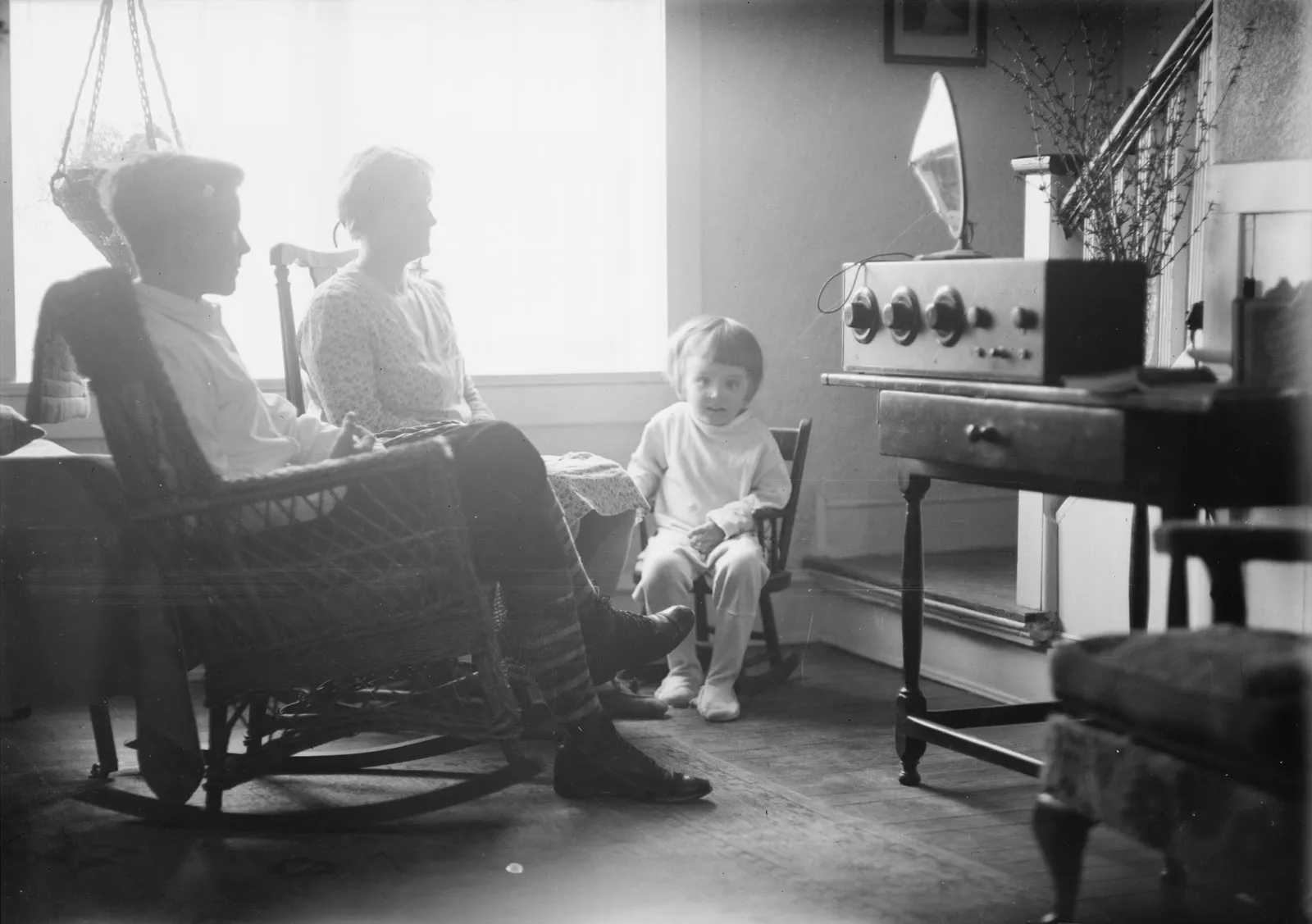
It wasn't until the 20th century that we saw our next major developments: broadcast radio and, shortly after, the television.
For many reasons, mainly brevity, I am going to hand-wave through radio and TV. Also, I am also going to consider them part of the same mass communication technology era.
Both platforms represent broadcast-style: 1-to-many communications.
Radio and TV both quickly proliferated across America (and the world) shortly after their introduction. Interest was off the charts, but costs began astronomically high.
Over time, manufacturing improved and prices fell. Owning a radio and/or TV became common.
At face value, radio and TV just provide entertainment. People can choose to watch whatever they want, or they can choose to abstain entirely. You wouldn't think entertainment would be that big a deal.
That it could really change society...
The printing press prepared the population. 75 years after it was created, Martin Luther and the forces of capitalism set European society on fire.
TV, radio? I don't know...
maybe Donald Trump is our Martin Luther...
A thought for another time.
¶ The Internet
This thread is about the internet. About the world we are experiencing today and what the future might hold.
First, we should orient ourselves. The internet was born ~30 years ago, much has changed since. Although many people dislike the term web3, it is useful in understanding the development of the internet.
- web1 - Consumption, the era of Geocities and image boards
- web2 - Connection the era of Facebook and social networks
- web3 - Possession, the era of crypto
Each one of these phases have radically changed (or will change) the way society functions. The lives of individuals, the operations of business and the functioning of governments were irrevocably changed every time the internet developed.
And we are still so early.
Society is changing so completely and so rapidly that it's impossible not to notice. It will go just as it went with the printing press, first slowly and then all at once.
We are in the slowly phase... but for how much longer, I cannot tell you.
¶ The Dot Com Bubble
But, we can take some important lessons from how to act during these times of uncertainty. One of the places that I for answers is the dot com bubble, both its champions and its failures.
In fact, you might find that sometimes the biggest losers are also the biggest winners. So much so that losing doesn't even matter.
Just ask the largest investor in Pets.com, the poster child of dot com failures: Jeff Bezos.
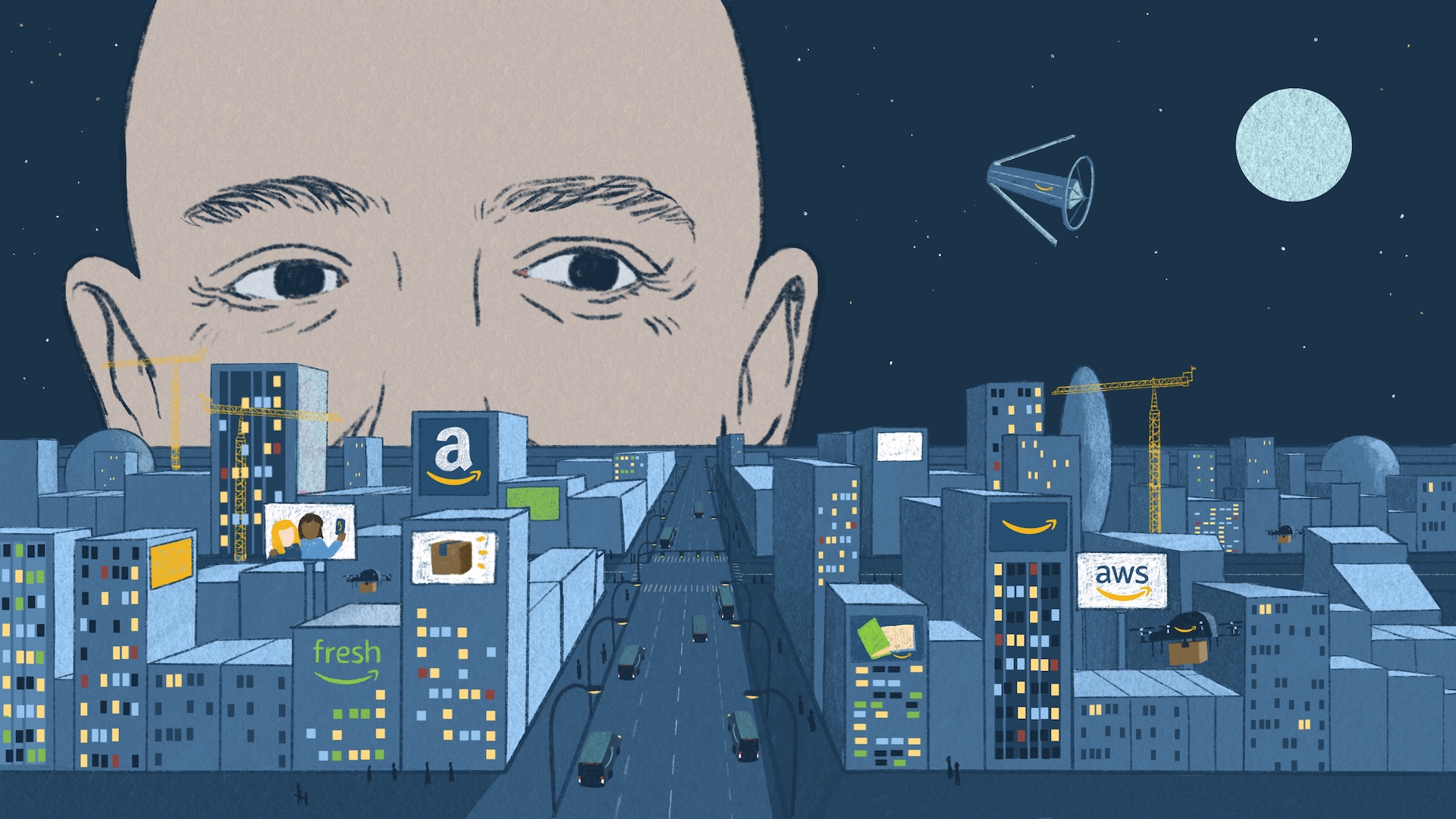
¶ Survivor's Game
The lesson that I take away is that nothing is more important than living another day. There's only so much you can control and sometimes the world is going to be crashing down around you.
There's always a path to redemption, you just need to make it to tomorrow.
It's 2022; the world has been radically reshaped by the invention of the internet, just a few decades before.
Europe is at war, the US is in political chaos, the global economy is refocusing on China, the planet is melting and above all else life is uncertain.
I am focused on (financially) surviving, but I've also got my mind on the other side, the result of all this disruption.
The world I'm interested in? One that builds on the innovations of the last 30 years.
Decentralized.
Fair.
On world of Ethereum.
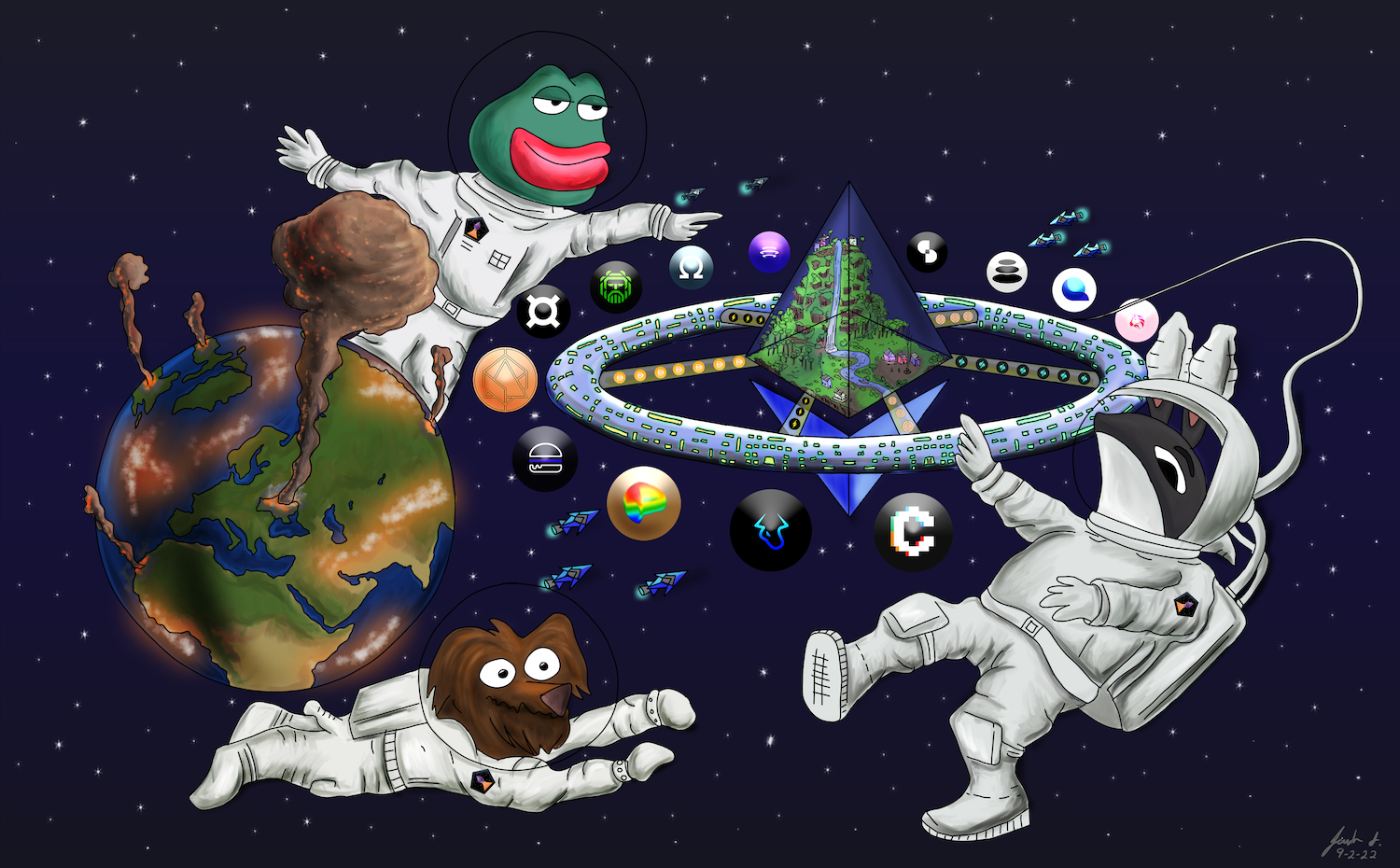
¶ Resources
This article combines the work of 2 tweet threads:
- How Mass Communication Reformed Europe
- Source Material - Twitter Link
- Source Material - PDF
- Mass Communication Technology
- Source Material - Twitter Link
- Source Material - PDF